Thousands of volunteers attend 'COVID-secure' concert trial in Germany
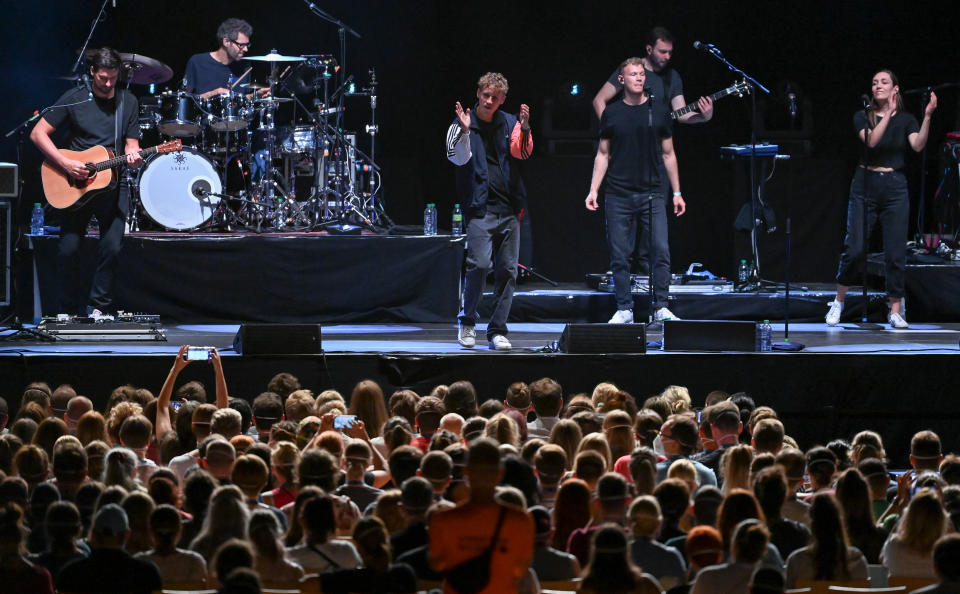
Thousands of volunteers have attended a concert in Germany to help organisers track how coronavirus spreads at large events held indoors.
In total 4,000 people turned up to watch singer-songwriter Tim Bendzko perform at the Leipzig arena on Saturday morning.
The University Hospital of Halle’s RESTART-19 transmission risk assessment aims to test what will happen in three different situations at a live event.
The first situation is without social distancing using two doors, the second is using eight doors and a single space between seats and the third is only allowing a capacity if 2,000 people with a five feet distance.

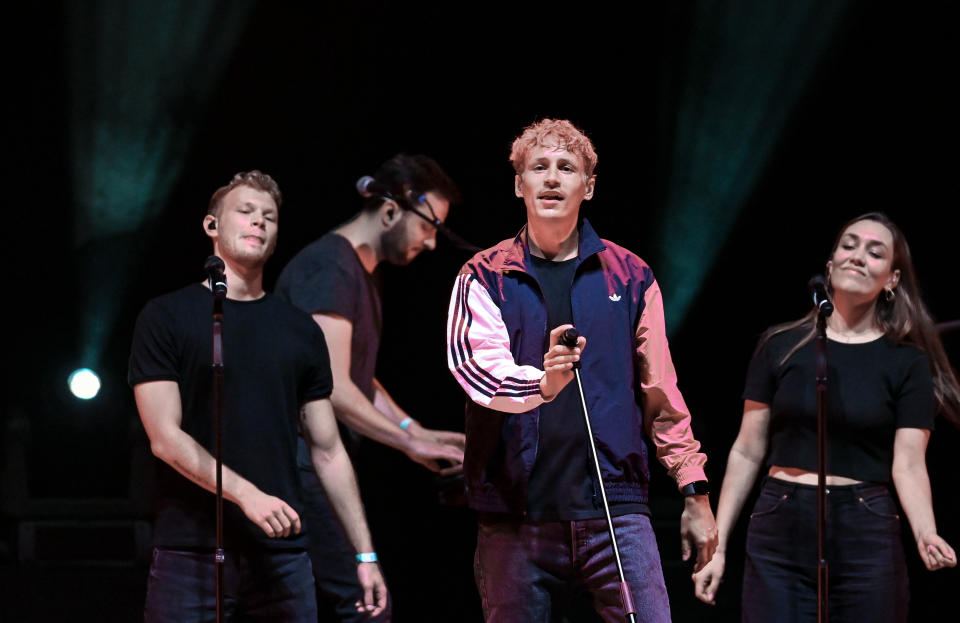
The results will be used to reduce the risk of coronavirus transmissions when large scale events are held again.
Volunteers aged 18-50, who had to pass a coronavirus test in the past two days, wore masks and a device around their neck to track their movements.
They also had their temperatures checked prior to entering the 12,000 seat arena.
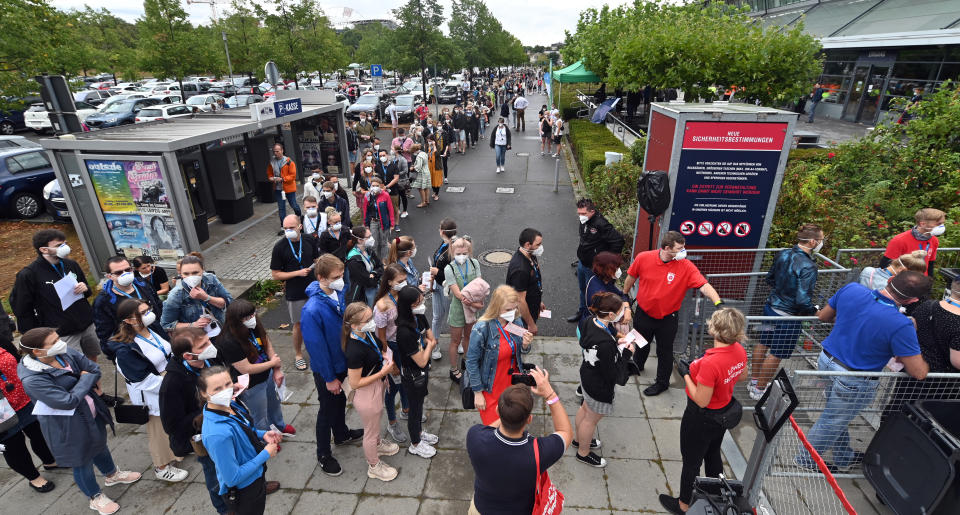

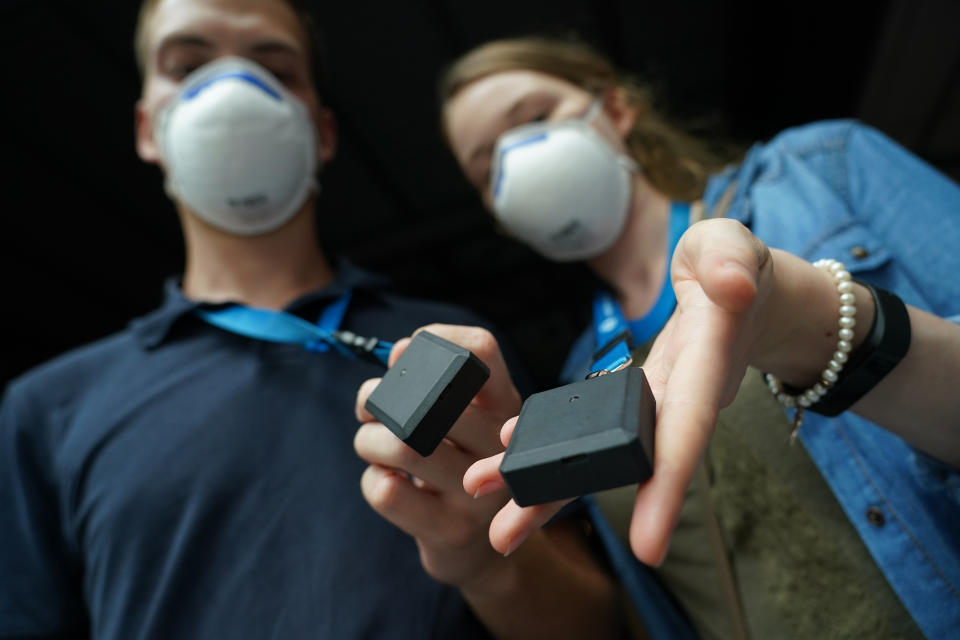
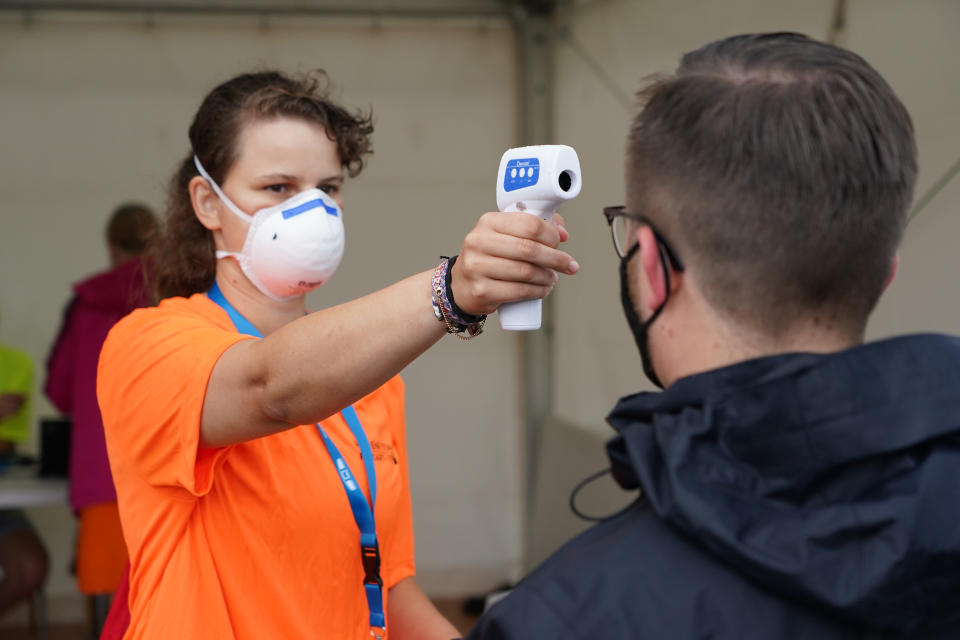
High-touch areas at the event will be marked due to volunteers being given fluorescent hand sanitiser so researchers can see their habits.
Researchers will also monitor what role vapours play in the spread of COVID-19 by using fog machines.
Results from the event, which cost around €990,000 (£892,000), are expected in October, the Guardian reported.
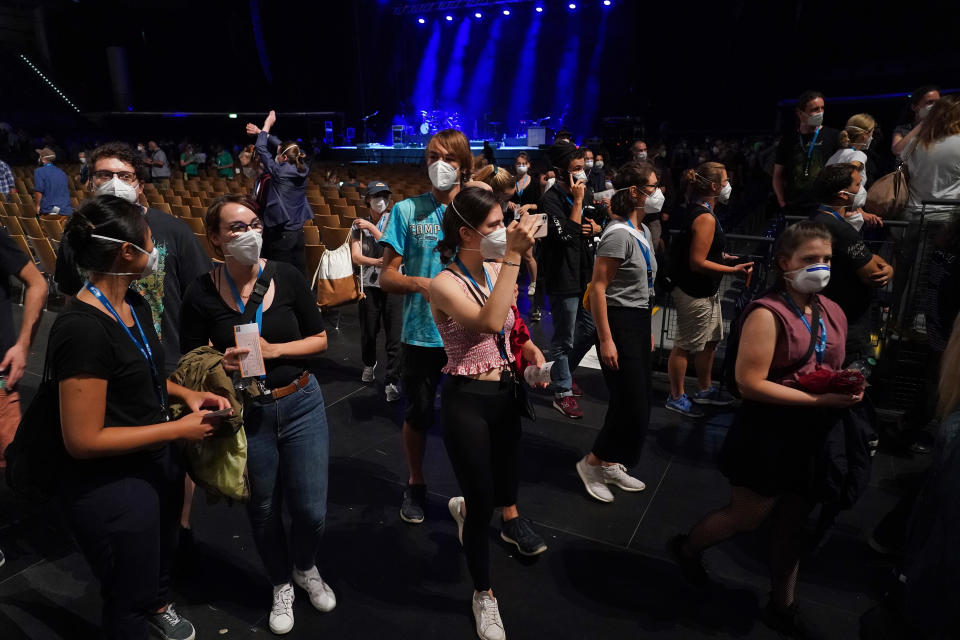

The number of new daily cases in Germany has been rising steadily since early July and has accelerated in recent weeks, driven by partying and people returning from holiday in countries where there is a high risk of catching the virus.
On Thursday, the number of confirmed cases climbed by 1,707 to 228,621, marking the biggest daily increase since April 26.
Deputy director of the Robert Koch Institute for infectious diseases has urged people to do everything to help reverse the trend.
Coronavirus: what happened today
Click here to sign up to the latest news, advice and information with our daily Catch-up newsletter

 Yahoo Sports
Yahoo Sports 
